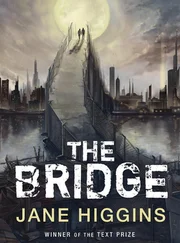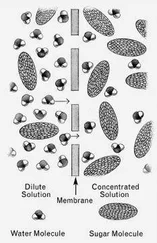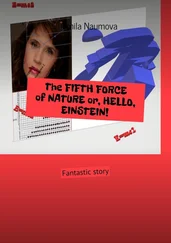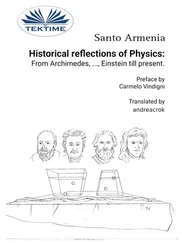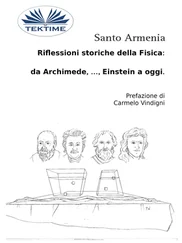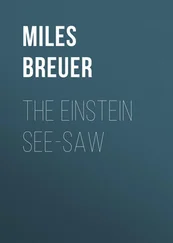Steve nodded. “So how’s the project been doing lately?” he asked.
“Not so well,” she said. “It’s supposed to be almost finished, but there’s been a lot of pressure… for cutting budgets? And the Army Engineers don’t have enough money to finish the project. Last I heard, they had stopped most of the work on it. According to the newspapers, a lot of the dredging and construction people have lost their jobs.”
“What about property values on the river?” Steve asked.
“They’ve been way down,” said Kathleen. “My Uncle Bob had some land over there, and after he died Aunt Clara had to sell it for next to nothing.”
“That’s too bad,” Steve said. “She should have kept it. I have reason to believe the prices will go up soon.”
GEORGE GRIFFIN ROSE AS THE TWO VISITORS ENTERED his Fermilab office. He was apprehensive about meeting these people, even though the appointment had been arranged by the Fermilab director himself.
“Hello, George,” said the taller of the men. “My name is George, too.” His hair was dark blond, like Griffin’s. Both men were wearing thousand-dollar suits that fitted them beautifully. They looked out of place at Fermilab. “I’m George Preston and this is my colleague Roger Fulton. We’re board members of the Iris Foundation.” They shook hands.
Griffin felt a surprising tingle accompanying each handshake. “I’m glad to meet you,” he said. “On the phone you mentioned a job proposition. I hope you understand that I just arrived here from CERN two weeks ago, and I’m not exactly exploring job opportunities at the moment.”
He’d read the recent news reports about the new major research foundation with a big endowment. It seemed too good to be true.
Preston nodded. His face looked strangely familiar, but Griffin could not remember in what context. “We understand your commitment to your new position here,” Preston said, “but we wanted to talk to you anyway. The Iris Foundation is now in the process of creating two major new research laboratories, the Iris Institutes. One of these will be located in Europe and the other in the United States. The foundation has very deep pockets for supporting fundamental research. The initial foundation endowment is over $5 billion, and we expect that to grow as the companies that support it prosper. We are here to offer you the job of research director of the new Iris Institute in this country. The starting salary is around $300,000 per year, plus benefits.”
Griffin felt a rush of adrenaline. “Research director? Surely this is a joke. You must want a prominent Nobel laureate for a position and salary like that. I’m just a mid-level high-energy experimentalist. I only make $45,000 a year, just a little more than I was getting at CERN. I don’t even have a permanent job at Fermilab, just a five-year appointment.”
“I know that our offer must seem strange, George,” said the man introduced as Roger Fulton. He had a clipped British accent. “But we already know that you are the man we want for the job. Let me tell you a story. It begins on a warm spring day in May of the year 2004, when I was sitting alone at a table at the CERN cafeteria, minding my own business…”
When Roger had finished, Griffin sat quiet for a while, thinking as he looked at Preston. “You want me to believe that you are me, but seventeen years older. If anything, you look younger than I do. You might be my younger brother.”
“I made myself younger with a bit of re-Writing of some basic cell biology,” said Preston. “I also Wrote a lot of other changes for my body that aren’t apparent. For example, I don’t have to exercise to stay in shape anymore. I’m also smarter than before, my reflexes are quicker, and I can cause my time sense to speed up or slow down by about a factor of ten. I can set my own muscle tone, and I can bench-press four tunes my body weight. I’m immune to cancer and other diseases. I can change my appearance and facial characteristics, too, but I haven’t, except for shaving off the beard. My whiskers don’t grow now unless I ask them to.”
Griffin’s eyes narrowed. Was this some kind of con game?
“But… Okay,” Preston continued. “Here’s some proof you might believe.” He extracted a black stamp pad and a sheet of white paper from his briefcase and placed them on the desk. Then he held out his right index finger to Griffin. “Look at my fingertip closely,” he said. “Make sure that I’m not using a rubber overlay or something.”
Griffin scratched his fingernail against the fingertip, then nodded.
Preston rolled his finger across the stamp pad and then across the paper, leaving a clear black fingerprint with a clear overhand loop pattern. “Now you do the same thing.”
Griffin did so, and then looked closely at the two fingerprints. “They’re the same,” he said quietly.
“Okay, let’s get to the point,” said Preston. “What do you think of our offer, now that you understand what we have in mind?”
What if I tell you I think you’re crazy? Griffin thought. “What if I tell you I’m not interested, that I like what I’m doing here?” he asked.
“I already know that you like the work,” said Preston. “You’ll do rather well here. Your group will clinch the discovery of the top quark in about two years, although it’s going to be rather messier than you might think. You’ll also turn up preliminary evidence hinting that the quark may have substructure. You and Grace will not have any children. You’ll land a permanent faculty position at the University of Washington in Seattle. About the same time you and Grace will part company, and she’ll go back to England. I know that you’re already having problems. Following that, in my world you joined the LHC collaboration and began to work primarily at the SSC. I’m not sure what you’ll do if the SSC project is canceled, probably join one of the LHC collaborations at CERN, either ATLAS or CMS. That, perhaps, won’t work out so well. Roger tells me the LHC at its present design energy is unlikely to get a definitive Higgs signal. So if you’re going to switch your research path, this might be a good time to do it.”
How would he know that Grace and I are having problems? Griffin wondered.
“I see that you still don’t believe me,” said Preston. “Okay, let me tell you some things about yourself that nobody else would know…”
Griffin listened as Preston began to talk, listing childhood events and personal secrets. Griffin was perplexed. How could he know these things? Had he mentioned them to his coworkers, to his friends, to Grace? Did he talk in his sleep? No, there was no way this guy could know… he must… “Okay! Stop! You win!” he said, feeling embarrassed, exposed. “I give up, dammit. You must be me.”
Griffin was quiet for a while. “What is the research at Iris going to be like?” he asked finally. “Not high-energy physics, I suspect.”
“We’ve told you some of it already,” said Roger. “As director of research, it will be partly up to you. Our plan is to select a few areas of basic and applied research and to move forward rapidly, to reach the point where we’re once again doing original research instead of learning from the Makers. We want to hire a lot of bright young people, with an emphasis on quick uptake and flexibility. You’ll be responsible for leading and guiding these young people. For a time it will be necessary to keep quiet about our information from the Makers, in order to minimize the culture-shock effect. We hope we can get through that period of secrecy in about ten years, perhaps sooner.”
“I’ve always hated secrecy,” said Griffin.
“I know,” said Preston, “you were very uncomfortable with all the security during the summer job you had with that defense contractor. But in this case it’s necessary, George. I also know you can deal with it when you have to.”
Читать дальше


